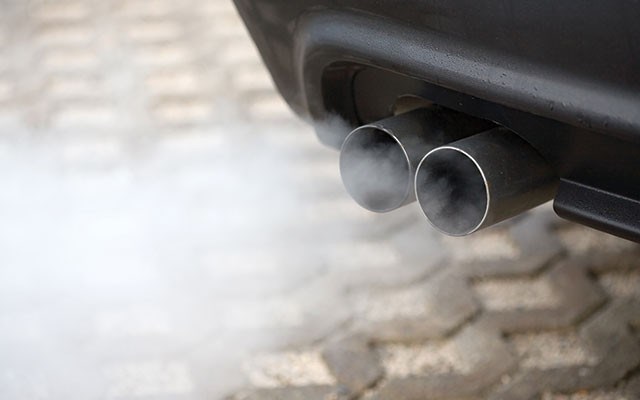The effect of the newly released BC Climate Action Plan from the B.C. government can be summed up in two words: It fails, according to Merran Smith, Executive Director at Clean Energy Canada and who was a member of the government-appointed Climate Leadership Team.
"We've been saying it's not a plan about climate action, it's a plan about procrastination," Smith said after the release of the report Friday, Aug. 19. "We're not even trying to make 2030 targets."
Smith's team last fall recommended numerous measures with the top priority to set targets for Greenhouse Gas (GHG) reduction. But Premier Christy Clark's plan will not raise the carbon tax, which she froze in 2011. Since then, B.C.'s carbon pollution has increased to the equivalent of 380,000 cars on the roads.
According to Canada's Second Biennial Report on Climate Change (2016), the projected carbon pollution in Canada will increase 32 per cent by 2030, an increase largely due to oil and gas development, including liquefied natural gas (LNG) projects.
To put it in perspective, Josha MacNab, B.C. director at the non-profit Pembina Institute, said in a release that the Pacific NorthWest LNG project near Prince Rupert would emit up to 10.5 megatonnes (MT) in 2050. B.C.'s legislated emissions target for 2050 is 13 MT.
"This plan fails. It doesn't reduce carbon pollution adequately in the short term. And the best-case scenario is our carbon pollution will be the same in 2030 as it is today," said Smith, who adds that Quebec, Ontario and Alberta have climate-action plans that will reduce their emissions anywhere from 22 to 26 per cent.
Under the 2007 Greenhouse Gas Reductions Targets Act, B.C. was on schedule to reduce greenhouse gas emissions by 33 per cent by 2020, and by 80 per cent by 2050.
But with this plan, Smith said B.C. has regressed from being touted as a leader in climate action, to lagging behind with a plan that will make it difficult for the province to meet its own legislated target for 2020.
Whistler resident Arthur De Jong, who is Whistler Blackcomb's environmental resource manager, said that in order for the Earth not to exceed as much as a 2.7-degreee Celsius increase in temperature by mid century, we have to keep something like 80 per cent of resources in the ground. He also said he was surprised how the Climate Action Plan "continues to lean on LNG," particularly if the projects involve fracking, which can cause more severe environmental impacts.
Last summer, it was revealed that as of 2013, the Resort Municipality of Whistler (RMOW) was no longer on track to meet its 2020 GHG emissions targets. Not only did Whistler's emissions stop decreasing in 2013, they've actually increased in each of the last two years — 1.2 per cent in 2014 and four per cent in 2015 — driven largely by increased emissions from passenger vehicles.
In an email, RMOW Mayor Nancy Wilhelm-Morden said: "The RMOW is currently in the process of reviewing the BC Climate Leadership Plan in detail, and we look forward to working with the Province of British Columbia and the federal government in collectively working together to address the challenge of climate change."
She went on to say: "While it is too soon to comment on the BC Climate Action Plan... Whistler's CECAP is designed to help Whistler become more energy efficient over the next 50 years through a phased, practical approach."
Whistler's CECAP of 2016 outlines some ambitious climate targets: A 33-per-cent reduction in GHG emissions by 2020, an 80-per-cent reduction by 2050 and a 90-per-cent reduction by 2060 (all relative to 2007 levels); a 10-per-cent reduction in total energy consumption by 2020; and to derive 100 per cent of total energy used in Whistler from renewable sources by 2060.
The plan was endorsed by Whistler council at its July 26 meeting.
"The overriding goal is simply to reduce carbon in the atmosphere," De Jong said. "The decisions we make now need to fit that reality... There's not a lot of time left with stabilizing the biosphere."
— With files from Braden Dupuis




